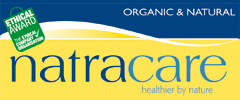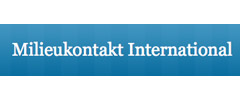EU Commission Partially Backs Germany's Stricter Toy Chemical Limits
Interview with Alexandra Caterbow, WECF coordinator for chemicals and health
27.03.2012 | Chemical Watch
Chemical Watch, 20-Mar-2012 - The European Commission has given Germany the green light to opt out of certain parts of the EU toy safety Directive and maintain its own stricter chemical limits in toys.
Germany opposed revisions to the Directive made in 2009 on the grounds that the chemical limits were too weak and asked the Commission for permission to keep its own limits in place on seven substances (CW 23 August 2011 (http://chemicalwatch.com/8226/eu-commission-extends-review-period-for-german-chemical-limits-in-toys?q=germany%20toy) ). The EU executive this week published its decision in the Official Journal on the national provisions notified by Berlin for lead, barium, arsenic, antimony, mercury and nitrosamines and nitrosatable substances in toys.
The Commission concluded that the measures notified by Germany for lead and barium were “justified by the need to protect human health, and that they do not constitute either a means of arbitrary discrimination, a disguised restriction on trade between member states, or a disproportionate obstacle to the functioning of the internal market.” The Commission said it therefore had "reasons to consider that the national measures notified can be approved, subject to a limitation in time”. It set the deadline as the “date of entry into force of EU provisions setting new limits for lead in toys or 21 July 2013, whichever comes first.” The EU executive came to a similar conclusion regarding the national measures notified for nitrosamines and nitrosatable substances, but approved them without any time limit.
“The Commission acknowledges that the migration limits for lead as established in the Directive no longer offer an appropriate level of protection for children,” stated the decision. “The tolerable daily intake used for calculating the limits was questioned by EFSA [European Food Safety Authority] and JECFA [Joint FAO/WHO Committee on Food Additives] in 2010, after the revision of the toy safety legislation. Taking this into account, the Commission already undertook the revision of the abovementioned limits” (CW 16 February 2012 (http://chemicalwatch.com/10000/eu-commission-opens-lead-limit-values-consultation?q=lead%20AND%20toys) ).
As far as nitrosamines and nitrosatable substances are concerned, the decision stated that “the Commission notes that a specific standard is being developed by the European Committee for Standardisation (CEN) for testing the presence of nitrosamines and nitrosatable substances in toys.” It said that “the Commission is aware that the limits for nitrosamines in finger paints are going to be lowered from 0.05 mg/kg to 0.01 mg/kg within the development of this standard, in order to better take into account children’s exposure.” The EU executive added that it “will ask CEN to consider data on small children’s mouthing behaviour” for other toys covered by the Directive.
However, the Commission concluded that it could not approve the national provisions notified by Germany with regard to mercury, arsenic and antimony, stating that they were “not justified on grounds of major need of protection of human health”.
"If one reads the decision carefully, it is clear that the Commission agrees with Germany, that the new toy safety Directive does not protect the health of children enough in case of lead, barium and nitrosamine,” said Alexandra Caterbow, coordinator for chemicals and health at the NGO Women in Europe for a Common Future (WECF). “However, they allow Germany to apply their national limits only until July 2013 - which means that when then new chemical provisions come into force, Germany has to accept more lead and barium in childrens toys, contrary to the growing body of scientific evidence, unless the limits are revised before. This is the only hope left for the health of German children."
Catherine van Reeth, director general of Toy Industries of Europe (TIE), stated that “the Commission has only approved Germany’s national provisions on these two elements until the new chemical requirements of the Directive have entered into force.” She said that “we understand that the Commission has no plans to revise the limits for lead and barium in the Directive unless its ongoing assessments show that this is necessary.” Ms van Reeth said that “should the Commission find that the limits for these two substances need to be revised, TIE would support these findings, provided that there are sound scientific data proving that it makes a difference in terms of toy safety.”
Official Journal
Related News
Getting to the Future We Want
4-7 November, Brussels: European Environmental Bureau’s (EEB) Annual Conference
12.11.2018
Human Biomonitoring for Europe
Vienna, 26 September: stakeholder forum
28.09.2018
A life without plastic, wouldn't it be fantastic?!
Interview with Charlotte Schueler of @PlastikfreiLeben, who lives a zerowaste life in Munich, Germany and shares her experiences to her 25.2 thousand followers on instagram & 37.2 thousand followers on facebook
14.09.2018
Calling for periods free from plastic & hazardous chemicals
Letter to Frédérique Ries, MEP, European Parliament on behalf of the #BreakFreeFromPlastics movement
04.09.2018






































